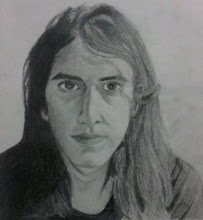Wednesday, October 26, 2011
Ode to Kirihito by Osamu Tezuka
Ode to Kirihito was awesome. It had great a great storyline, art, and dialogue. It was the complete package. I never thought too much of manga before. But this book definitely makes me realize that no matter what medium of art, there are a few greats that give it a good name and make it worth to check out.
Tezuka creates many intricate plots that follow different characters besides the protagonist. All the plots occur simultaneously and help the story develop and add extra suspense.
The book is really a cinematic experience that unfolds like a Tarantino movie on steroids. The brutality of some of the scenes that occur in the book are masterfully contrasted with the meticulous and beautifully drawn landscapes of Japan.
Wednesday, October 19, 2011
Fun House by Allison Bechdel
Fun House is a very smart and well written comic-memoir or graphic novel. In the story the narrator and main character, Allison Bechdel, a lesbian, struggles as a young girl to be feminine and is more inclined to be tomboyish. She admires rough, muscular, strength of men as well as men's fashion magazines, not for the men themselves but because of their traits and fashion. At the same time her father, Bruce Bechdel, is secretly an in-the-closet homosexual living a straight man's life. He is obsessed with antiques and treats his furniture like children and children like furniture.
Bruce always pushed Allison into dressing more girly and encouraged her to act her gender. This is a big theme in the book, gender confusion and identity, and is a frustration in Bruce's own life because he himself is a homosexual/bi person vicariously living through Allison.
Alisson is also living her desire to be masculine through her father. She advices hes father on men's fashion secretly seeing herself in the clothes. I think this was an important moment in understanding what both characters are really made of and how similar they are.
Wednesday, October 5, 2011
Maus - Art Spiegelman
Maus was a great read in my opinion. It was informative and entertaining. I was intrigued at first as to how much of the atrocities of the holocaust they were gonna depict, especially since Spiegelman was using cute mice and cats as the main characters. The book wasn't too graphic in content but it definitely delivered some tragic and bleak moments.
It is Art Spiegelman's father's first hand account of the the holocaust in Poland and his stay in Auschwitz. In the story Art is a comic book artist trying to get information from his elderly father about his time in the holocaust. Their relationship is at times frustrating for both of them. Vladek, the father, is a bit of a greedy and stingy old man and is constantly fighting with his second wife Mala. Art's mother commits suicide years before the book takes place.
The story is pretty epic and I felt it read smoothly and quickly. The reader is taken in a grim adventure through nazi occupied Poland.
There are many reasons why Maus was and is so popular. The reason why i enjoyed it so much was McCloud's idea of putting one's self in the cartoon's place. You really feel part of the story both in the supposed real world where Art in interviewing his dad and in the memory of his tale.
Something that really caught my eye was Art's comic about his mothers suicide. It played into the story well but besides that it showed the reader how personal this whole graphic novel is to Spielgelman. It was meant in my view to pull the readers attention through his/her emotions. It was also an opportunity to show Spiegelman's other drawing style. Another similar thing that i found interesting was how he used a photograph of his brother at the beginning of the second book and also one of his father towards the end.
Subscribe to:
Comments (Atom)




